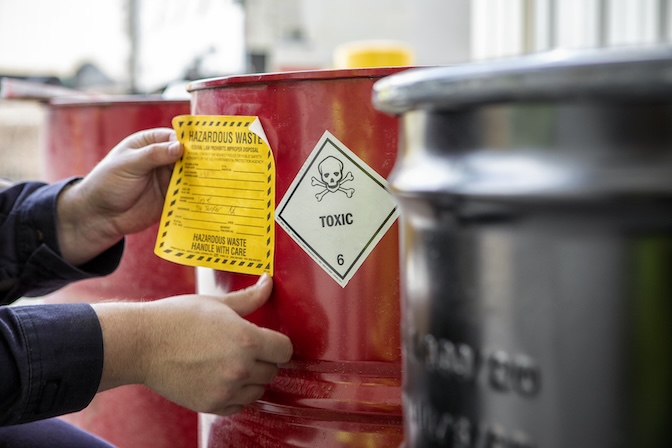
Guide to Sustainable Medical Supply Disposal for Small Businesses
Explore sustainable ways to dispose of medical supplies in small businesses. Reduce waste, recycle responsibly and benefit your bottom line.Byline: BTB Editor
January 8, 2025 / Time to read: 5 minSmall businesses aren’t just responsible for providing exceptional customer service — they also need to ensure a safe environment for their community with responsible disposal of medical waste, medications and devices. Most medical supplies, from drugs and electronics to liquids and sharps, are highly regulated and need proper disposal to mitigate environmental damage.
In this article, we share some best practices for small businesses to sustainably dispose of medical supplies.
Strategies for Medical Supply Disposal
Medical supplies often require special handling and can't be thrown in the trash. This means that small businesses need to form a strategy for each specific type of waste they handle.
- Over-the-counter and prescription medications require specific disposal procedures to prevent misuse and environmental harm.
- Sharps and needles must be carefully discarded in a strong plastic container to avoid injuries.
- Hazardous liquids, like hydrogen peroxide or rubbing alcohol, can contaminate water sources if dumped down the drain.
- Electronic devices, like blood pressure cuffs, hearing aids and thermometers, should be recycled or disposed of safely to reduce environmental waste and conserve resources.
Adopting sustainable disposal practices can greatly minimize your environmental impact while contributing to a healthier community.
Legal and Regulatory Requirements for Disposing of Medical Supplies
Understanding the laws and regulations around disposal is essential to operating any small business that deals with medical supplies.
Federal and State Regulations
There are several federal and state laws that businesses must follow when disposing of medical waste. These include the
- Identify and segregate hazardous waste
- Store waste properly in designated containers
- Use licensed waste haulers for transportation
- Treat waste to reduce its hazard potential
- Properly dispose of the waste in a permitted facility
- Maintain records for at least three years
Consequences of Non-Compliance for Small Businesses
Non-compliance with the above regulations can lead to serious legal and financial consequences for small businesses. Penalties can range from
Options for Sustainable Medical Supply Disposal
In a world that is increasingly focused on sustainability, small businesses need to think about how they can responsibly handle their waste. Here are some sustainable practices to incorporate.
Mail-Back Disposal Services
You can also consider mail-back disposal services, which allow you to
Lab Pack Services
Some waste companies offer
Hazardous Waste Collection Sites
Your municipality likely has hazardous waste collection sites, which may accept medical supplies for disposal — sometimes even for free. Contact your local waste facility to identify the specific types of medical waste they accept.
Manufacturer Take-Back Programs
Used supplies can sometimes be returned to the manufacturer or supplier for proper disposal or recycling. This service reduces the business’s waste and often saves them money, too.
Pharmacies
Local pharmacies may accept unused medications for proper disposal. Check the U.S. Drug Enforcement Administration’s list of authorized substance collectors near you.
Donation Sites
Consider donating unused but intact medical supplies to organizations like
Benefits of Sustainable Medical Supply Disposal
Let's look at a few key advantages of sustainable medical supply disposal in your small business.
- Positive Impact on the Environment and Community: Reduce pollution, greenhouse gas emissions, soil and water contamination.
- Enhanced Reputation and Customer Loyalty: Improve the public image of your small business, earn loyalty and attract new customers who are more environmentally conscious than ever before.
- Cost Savings through Efficient Disposal Methods: Trim your business expenses by avoiding expensive disposal fees while lowering the volume of waste your business generates.
The Impact of Improper Disposal
If medical supplies are disposed of incorrectly, they harm the environment. Medical supplies that aren’t recycled or reused consume more
From a personal safety perspective, improperly discarded syringes, needles, sutures and scalpel blades can cause injury and infection to healthcare workers and
Challenges and Solutions for Implementing Sustainable Medical Supply Disposal
Transitioning to sustainable medical supply disposal can bring up several challenges when it comes to cost, training and logistics. However, there are viable solutions.
Cost Considerations
The initial costs may be higher, but in the long run, sustainable medical supply disposal can save a lot of money by helping you avoid hefty fines. Plus, the positive PR and state and federal incentives can far outweigh the initial cost.
Education and Training for Employees
A well-educated staff is a key element in successfully implementing new, sustainable practices. Provide employee training that not only teaches the correct procedures of proper disposal but also helps your team understand the reasons behind it.
Overcoming Logistical Hurdles
Implementing new disposal procedures can be difficult if you have a lot of waste to manage or limited space to store it.
Reduce Your Business's Waste Impact
Sustainable medical supply disposal helps small businesses maintain cleanliness and regulatory compliance while helping limit climate change. Set the sustainability standard in your community and inspire others by adopting responsible waste disposal practices.
Segregate waste, partner with a certified
